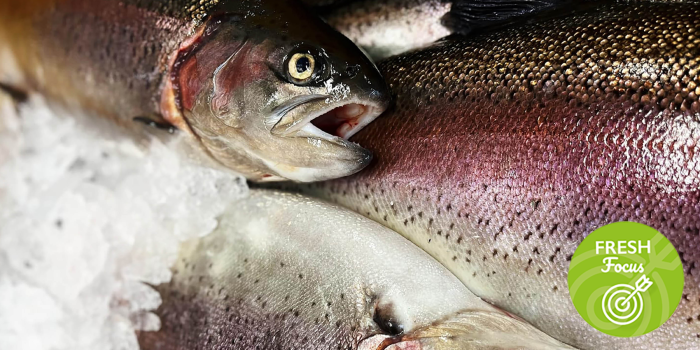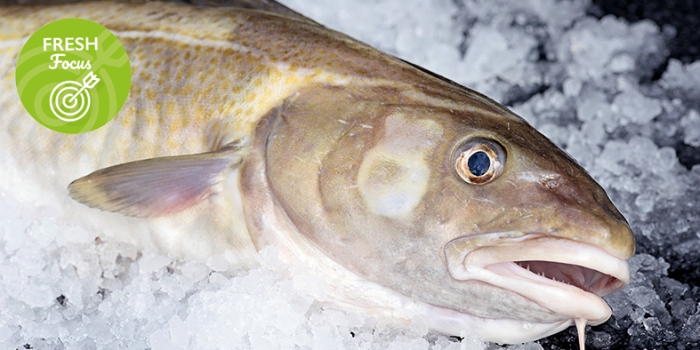With increasing awareness of environmental issues, it’s more important than ever to prioritise sustainability when choosing fish and seafood for menus. In this blog post, we’ll explore some tips and tricks to help chefs make informed decisions when sourcing more sustainable fish and seafood, ensuring that every dish we create supports the health of our oceans.
Understand Sustainable Seafood Labels
Familiarise yourself with various sustainable seafood labels and certifications, such as MSC (Marine Stewardship Council) and ASC (Aquaculture Stewardship Council). These labels indicate that the fish or seafood has been sourced from responsibly managed fisheries or farms in regards to minimising environmental impact and ensuring traceability.

Consult Seafood Watch Guides
Utilise resources like the MCS Good Fish Guide to access up-to-date information on the sustainability of different fish and seafood species. The Good Fish Guide provides comprehensive guides and online resources that categorise seafood options based on their environmental impact, helping chefs make informed choices.
Prioritise Local and Seasonal Options
Opt for locally sourced fish and seafood whenever possible, as it reduces the carbon footprint associated with transportation and supports local fishing communities. Additionally, choose seafood that is in season, as it may reflect healthier fish stocks and minimises pressure on vulnerable species. Read all about how we source our fish and seafood local to our depots across the UK, here
Diversify Your Selection
Diversifying the range of fish and seafood options on your menu can help promote biodiversity by encouraging the consumption of a broader array of marine species. This reduces pressure on overfished species, allowing their populations to recover and maintaining ecological balance. Additionally, it supports sustainable fishing practices and encourages the management of diverse marine ecosystems, contributing to the overall health of the ocean. Explore alternative and lesser-known species that are abundant and underutilised, offering unique flavours and textures to your menu while alleviating pressure on popular fish stocks.
Consider Aquaculture Practices
When selecting farmed seafood, inquire about the aquaculture practices employed by suppliers. Look for farms that prioritise environmental sustainability, minimise pollution, and prioritise the welfare of the fish. Choose seafood from farms certified by reputable organisations like ASC, GAA-BAP and Global Gap to ensure responsible aquaculture practices.
Build Relationships with Suppliers
Establishing strong relationships with supplier can allow you to gain insights into sourcing practices and access responsibly sourced seafood options. Communicate your commitment to sustainability and inquire about the origins of the seafood to ensure alignment with your values. At Direct Seafoods, we believe in transparency of our practices and traceability of our products and are always happy to share this information with our customers, just ask your account manager for more information!
Educate Your Team and Guests
Share your knowledge of more sustainable seafood practices with your kitchen staff and educate them on the importance of making responsible choices. Additionally, inform your consumers about your commitment to sustainability and highlight more sustainable seafood options on your menu to encourage informed decision-making.
By following these tips and tricks, chefs and other food industry professionals can play a vital role in promoting sustainable fishing practices and preserving the health of our oceans. Let’s work together to ensure that every fish and seafood dish we serve contributes to a thriving and resilient seafood industry for generations to come.

Our team are on hand to support you and discuss your requirements in order to provide the best fresh ingredients for your dishes.
Follow us on social media for regular updates on Instagram, LinkedIn, Twitter and Facebook


